It was a year ago on March 8th 2020 the Interfaith Institute had its in person program with a sizable number of attendees followed by social interaction and some refreshments. I recall having a chat with supervisor Judy Bosworth about the ‘virus’ which had affected many congregants in a Synagogue in Westchester. Soon after, all of us learnt about Covid 19 which has had huge impact on all of us, the 500,000 plus deaths in USA, lockdowns, job losses and social isolation. This reminds me of the Quranic verse 94:6—With hardship comes ease—never lose hope. In fact, one of the programs organized by Rev Dwight Wolter focused on the lessons learnt during this pandemic, please read the summary of that conversation—its an eye opener.
A year ago I had not heard about “Zoom” meetings, well it took a while for me to learn about the intricacies of this virtual platform which has facilitated my virtual participation in the memorial services for my nephew who passed away in Kashmir and my sister in law who passed away in Los Angeles, in addition I have been able to hear some great presentations from around the world on religious and other topics. A Turkish immigrant couple Drs Ugur Sahin and Ozlem Tureci developed the Pfizer Covid vaccine, a great example of service to humanity. This was followed by few other vaccines, thankfully under the Biden administration we in USA will have vaccinated most of the population this year. The Interfaith Institute has also adopted to the new realities created by Covid-19. Thanks to the great vision and perseverance of the IFI board and executive members IFI has hosted four stellar programs which have been summarized in this newsletter. The interest and attendance at these programs has been robust, in fact in the program on Slavery IFI had to close registration after it crossed three figures. During March the IFI facilitated a teaching program in Babylon school district for 9th and 6th graders. Ms Krystle Barnett provides a summary of this unique virtual program in which 750 students participated. IFI provided speakers for the three Abrahamic faiths and Hinduism—details in Ms. Barnett’s report. Interfaith Institute was established in 2015 with a vision of: Being a center of excellence for developing and sustaining a progressive, vibrant Interfaith community and a nurturing environment for the society at large. We hope and pray that the Interfaith Institute of Long Island is fulfilling these expectations.
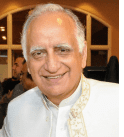
In closing, my warm welcome to the new board members who joined IFI, thanks to the board members who agreed to stay for a second term and special thanks to the growing number of participants at IFI events. This quarter – Jan-March 2021 IFI has had over a thousand attendees at its various programs. May I also request the readers of this newsletter to provide us your feedback with suggestions for new programs, constructive critique of IFI activities which we always welcome along with your financial contributions.
-Prof Faroque A Khan M.A.C.P
Chair Interfaith Institute of Long Island Board
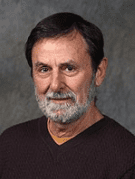
The Interfaith Institute of Long Island (IFI) often hosts panel discussions to explore important ethical questions in a person’s daily life through various religious
perspectives. The IFI provides moral guidance from a
diverse range of faiths so that attendees can consider
how they might contribute to a more righteous society
overall. On January 5th, 2021, Professor Emeritus Arthur Dobrin of Hofstra University moderated the most
personal of these events yet. “Competing Loyalties”
was a panel discussion about the responsibilities an
individual holds to her parents, children, and community, and whether or not these obligations should
eclipse the pursuit of her own self-interests. Professor
Dobrin and his panel of four religious experts responded to a fascinating case study that presented various
conflicts between the duty to others and the duty to
yourself. Michael Simmons, the dean at St. John’s
Law School, represented the Catholic viewpoint. Rick
Seifert, a former clerk at Multnomah Friends, represented the Quaker point of view. Rabbi Jen Weinstein,
the Rabbi of Congregation Simchat HaLev, represented the Jewish outlook. And Daisy Khan, the founder
of the Women’s Islamic Initiative for Spirituality and
Equality (WISE), represented the Muslim position.
The case study for this discussion was Deep Well, a
short story by Professor Dobrin about responsibilities
in family relationships and the price of integrity. The
story follows the Wicks family, a single mother based
in a small-town farm with four children who desire a
greater life than that of the rural midwest. Lillian, the
widowed mom, refuses to abandon the deep roots she
has planted in their humble family farm when her husband dies of cancer, despite move-in offers from her
kids that had moved to larger cities over the years. She
chooses to remain home alone and the pressure
mounts on her children to care for their mother. As
Lillian sinks into loneliness following her husband’s
funeral, readers must wonder — do her kids have an
obligation to return home at the expense of their independent lives?
Meanwhile, another ethical dilemma builds around
Kent, the youngest sibling. Kent studies at a military
academy that promises to pay his tuition bill so that he
may one day attend medical school. Kent strives to
become a doctor in the future to contribute to society
through incredible ambitions such as curing cancer or
eliminating childhood disease. However, he comes
across an obstacle as a student at the military academy
that threatens to impede his dreams. Kent’s best
friend, Norman, has plagiarized a paper and refuses to
report himself to the academy. If Kent does not report
Norman, both boys will
face expulsion. As Kent
considers turning in his
friend, he wonders about
the sincerity of his incentive
to do so. Kent questions
whether he would report
Norman only to save himself and his dream job from
expulsion or because he truly believes that cheating is
wrong. So, in order to preserve his integrity, Kent resigns from the academy before reporting Norman to
ensure that his motives are righteous. As Kent’s medical career fades farther into an unreachable distance,
readers must wonder — did he have an obligation to
his ethics at the expense of his schooling?
These moral concerns generated scintillating dialogue
between panelists and attendees. Regarding Lillian’s
scenario, Christianity, Judaism, and Islam all hold parents in a high esteem. Hence, the various religious perspectives favored similar approaches to parental care
and encouraged the children to care for their lonesome
mother. On the other hand, Kent’s moral dilemma presented greater complexity. Cheating is wrong by all
religions, but the pursuit of education and a proper
livelihood is important as well. Following the program, Professor Dobrin offered his humanist response
to Kent’s choice to drop out of school and then report
Norman for plagiarism. Professor Dobrin contended
that Kent made the right decision to protect his character and the moral code of the military academy. Although the case study was about a faraway family in a
fictional town, its moral concerns were clearly rousing
to the zoom attendees. Professor Dobrin, the panelists,
and the audience all learned valuable lessons about
family and personal responsibility that are certainly
applicable to all of our daily lives.
The event was an incredible success and generated
tremendous interest. Professor Dobrin had to extend
the Q&A for an additional half hour to accommodate
audience questions. Furthermore, attendees continued
to email in comments even after the program had ended. The IFI looks forward to hosting another panel discussion in the near future and encourages all members
to invite their family and friends to expand their moral
understanding and explore our interesting religious
perspectives.
Conflicting Loyalties Event Held January 5th
Moderator: Arthur Dobrin
The COVID-19 pandemic has radically transformed
human society as we know it. Over the past year, a
miniscule virus proliferated from a single location to
virtually every corner of the globe, bringing with it
dramatic loss of life, unprecedented challenges to public health infrastructure, and economic and social devastation. Yet, as IFI board member Reverend Dwight
Wolter puts it so eloquently, “the present powers of
hope and healing are within our reach”. Our world’s
faith traditions illuminate the human ability to emerge
from tragedy as stronger, kinder, and more conscious
versions of ourselves. On February 16th, Reverend
Dwight Wolter moderated hosted an IFI zoom conversation on the ways in which our community members
have learned, grown, and reflected throughout the
course of the pandemic. “What is Your Favorite Part
of the COVID-19 Pandemic” was a panel discussion
about the lessons, experiences, and blessings that
arose from an otherwise dire situation. Panelists Ms.
Sahar Hussain and Professor Benjamin Rifkin of the
IFI board shared how their religious faith guided their
ability to navigate the extreme difficulties brought
about by life under the pandemic. More than anything
else, the dialogue struck hope that we will, and have
already begun to, emerge from this disaster with wisdom and resilience.
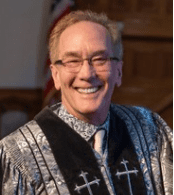
Reverend Wolter guided the conversation around various themes that the panelists explored, starting with
isolation and loneliness. Professor Rifkin expressed
the deep hardships of missing family, friends, and
basic human connection. Ms. Hussain added how
missing Ramadan, a holy month in Islam usually celebrated through the community, felt like a loss in her
spiritual life. Audience members contributed their perspectives as well, both in present-time during the discussion and through comments submitted before the
event. People spoke about the benefits of introspection
and appreciation for close relationships. Overall, the
panel reached a consensus that solitude has presented
a special opportunity to build a more personal and individual relationship with God, allowing for a more
grounded and grateful mentality overall.
The next theme put forth was the question of reevaluated priorities. Ms. Hussain highlighted how selfcare and personal development rose to the forefront of
her concerns. Professor Rifkin reflected on dedicating
more time to his family and focusing greater attention
towards his personal relationships. Other participants
also contemplated the greater love and dedication they
wish to express towards the important people in their
lives. Everyone emphasized that the drastic life changes they endured by the pandemic really pushed them
to consider what aspects of
living matter most to them
and how they might go
about acting on those priorities.
Thirdly, the panelists discussed their awareness of
what we depend on to live a
safe and comfortable life.
Reverend Wolter pointed out the importance of financial security, technology, and healthcare in particular.
He stressed that it is easy for a person to complain
about smaller inconveniences caused by COVID-19,
but it is essential to look beyond these grievances and
recognize the privileges of insurance, electricity, and
family that we might otherwise take for granted. He
underlined the social importance of recognizing racial
and socioeconomic privilege especially in light of
those who do not have the same advantages as you.
Additionally, the dialogue focused on aspects of human society that have improved throughout this time
period that we might hope to maintain. For example,
Ms. Hussain explained how the decrease in global
transportation has had profound benefits in terms of
our carbon footprint. The earth has been afforded an
opportunity to heal, which she hopes will extend beyond the point that the economy picks up to preCOVID activity levels. Furthermore, Professor Rifkin
spoke about increased social awareness about the oppression experienced by minority communities in the
United States, especially through issues such as vaccine distribution and general disparities in our
healthcare system. Racial, ethnic, and gender discrimination has existed long before the COVID-19 virus,
but the conditions of the pandemic has certainly
brought these issues to greater attention. Participants
expressed hope for an enhanced commitment to confronting this hatred as the pandemic comes to a close.
Finally, the discussion closed by steering the conversation back towards a central IFI theme: the impact on
connection to faith communities. Reverend Wolter
pointed out how his church’s soup kitchen initiatives
have witnessed fewer participants as the pandemic has
progressed. Ms. Hussein highlighted that mosques
have also capped attendance of Islamic prayer in congregation. Professor Rifkin expressed how much he
misses being in his community’s holy space. Yet everyone acknowledged the importance of public health
and learning to balance the importance of religious
commitment and personal safety. People are learning
how to be selfless and how to put the health of the
community before themselves.
COVID-19 Impact Event Held February 10th
Moderator: Rev. Dwight Wolter
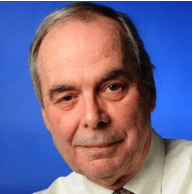
In the popular imagination, the enslavement of human
beings by other human beings, a wicked stain on the
nation’s soul, is limited to the American South. But a
recent webinar sponsored by the Interfaith Institute of
Long Island focused on the sad reality that slavery
happened right here on Long Island.
The basis of the webinar, the institute’s second on issues of racism, was an ambitious research project by
journalism students at Stony Brook University, so
deeply researched and well written that Newsday published several of their stories. Some also appeared as
radio segments on Connecticut-based WSHU-FM.
“In the colonial era, every family of means had a
few—maybe one, maybe two, probably no more than
three—enslaved people in their household,” said Professor Lynda Day, a historian at Brooklyn College,
one of the four panelists. “And that’s the reality of the
colonial period on Long Island.”
Day’s book, Making a Way to Freedom, A History of
African Americans on Long Island, was a key source
for the 17 Stony Brook students. Their professor, Karen Masterson, invited her to meet with the students,
and Day was pleasantly surprised by how much they
had learned. “The fact that the students already knew
about what I had been writing was really very inspiring, heartwarming,” Day said. “It was really a very
good experience for a person who’s a teacher, a historian, to go to a group of young people who are already
prepped to ask very intelligent, very thoughtful questions about the topic.”
Masterson, a science journalist, had launched the effort after working with students on the Long Island
Pine Barrens, an environmental treasure. Her dean invited her to try another equally ambitious project, on
any subject she chose. Her first book was The Malaria
Project: The U.S. Government’s Secret Mission to
Find a Miracle Cure. Work on a new book about public health, which starts in Virginia during the slave
era, led to the idea.
Masterson, who now teaches at the University of
Richmond, admired the 1619 project in New Y ork
Times, on the origins of slavery in America. “But they
kind of had their back to Long Island, and they’re
looking at the rest of the country,” Masterson said.
“They weren’t doing any stories on Long Island. I had
already done a little work and understood that we had
some really interesting stories to tell from Long Island. So I pitched it to my class.”
Her class bought the idea and began digging, with
help from both Day and Zachary R. Dowdy, a Stony
Brook journalism professor. He helped bring their
work to Newsday,
where he then worked
as a reporter. “I came in
slightly late to the project,” Dowdy said.
“They had spoken with
Dr. Day at least a couple
of times, and she gave
them a lot of guidance.
So, some of the initial vetting had already been done
by the time I jumped on board. I was getting, in some
respects, stories that were already in progress, and I
was able to begin guiding them source-wise and more
conceptually, how is the story going to read, and how
much more reporting has to be done.”
One of those students was Brianne Ledda, now a senior and the editor of The Statesman, the campus newspaper. She and the other students drove all over Long
Island, including Brookville and Oyster Bay. Her
group began at Sylvester Manor, a 17th century plantation on Shelter Island. They spoke with Donnamarie
Barnes, the archivist there, who referred Ledda to the
Plain Sight project, which had been exploring slavery
in the Town of East Hampton. Ledda wrote about
Plain Sight, and her work was honored by the Hearst
Awards Feature Writing Competition.
“I’ve lived on Long Island my entire life, and I did not
know about the history of slavery here,” Ledda said.
“So I felt like I was discovering something new every
step of the way.” One stunning fact she learned came
from a Plain Sight volunteer, Jonathan Kuperschmid.
“He said he found an account book that listed the price
of cheese as worth more than what they had listed for
an enslaved person,” Ledda said. “That was pretty
shocking, I think, for everybody who encountered that,
to even process that concept. Not only are you putting
a price on a person’s life, it’s not even worth more
than cheese. That’s crazy.”
What Ledda, the other students, and the professors
produced led to a Zoom conversation that drew a larger-than-usual audience. “For the first time we had to
close the registration due to the great excitement and
demand” said Dr. Faroque Khan, founder of the Interfaith Institute. “Clearly there is great interest in this
topic, which we at the Interfaith Institute of Long Island plan to explore further in future programs.”
The summary of COVID-19 Impact and Do Not Resuscitate programs provided by Ms. Leena Khan
Healthy people tend not to think about the concept of
death on a daily basis. We cling to the fabricated belief
that our destiny is to be long-lived. However, the most
basic fact of all life is that death is inevitable, whether
it occurs tomorrow or 50 years from now. The Interfaith Institute of Long Island explored this concept of
mortality and its ethical implications during their
zoom webinar “Ethical Dilemma and Modern Medicine with focus on DNR - Do Not Resuscitate” on
March 20th. IFI member Dr. Badra Shah moderated
the event. She guided conversation between key
speakers Audrey Kitagawa, president and founder of
the International Academy for Multicultural Cooperation, Dr. Faroque Khan, chair of the IFI executive
board, Rabbi Randy Sheinberg, leader of Temple Tikvah in New Hyde Park, Reverend Donna Marie Field,
ethics consultant at Northwell Health, and Reverend
Swami Sarvapriyananda, minister of the Vedanta Society of New York. Each speaker presented for approximately 10 minutes, elucidating important questions on the topic such as the quality of life under artificial life support and the power of attorney in the absence of DNR in a living will.
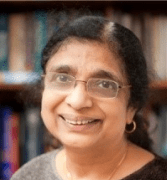
Ms. Kitigawa represented the spiritual perspective on
the DNR conversation. She centered her presentation
around the four essential principles of biomedical ethics that are universally applicable. These principles are
beneficence, justice, autonomy, and nonmaleficence.
Respectively, they mean to prevent harm, fairness of
treatment and distribution of resources, the individual’s right to decide, and the obligation not to inflict
harm on others. These are important principles to take
into account for any decision relating to DNR, such as
how long to keep a patient alive for when they have
indication of brain death.
The next speaker was Dr. Faroque Khan, representing
the Islamic perspective. Dr. Khan used various anecdotes from his experience as a practicing physician to
relate the teachings of the Quran, the Islamic holy
book, to ethical questions in medicine. He mentioned a
moment working in the ICU during which the wife of
his patient asked to take her husband off of life support because of the financial burden that it posed, revealing the many layers of consideration that must be
taken into account when dealing with DNR. In response to the situation, Dr. Khan consulted Islamic
scholarship on the topic, which teaches that although
life is sacred, it should not be protected at the cost of
human dignity. If death is inevitable, there is no responsibility to prolong a person’s suffering through
artificial means.
After Dr. Khan’s presentation, Rabbi Randy Sheinberg
offered the Jewish outlook
on the subject. She explained that Judaism does
not provide just one correct
answer in terms of DNR. It
should be a “head and
heart” decision while keeping God in the picture.
However, she offered guidance in terms of Jewish law,
which is that doctors are obligated to heal and to save
individuals when they have the opportunity to do so
because life is sacred. However, if they do not believe
that any procedures will save a life, then they are not
obligated to administer them. Rabbi Randy Sheinberg
highlighted the important difference between saving a
life and unnecessarily prolonging it. In a sense, it is
cruel to prolong death after its time.
Next, Reverend Donna Field spoke from the Christian
point of view. She emphasized the importance of
providing a healing and supportive system for family
members and loved ones that are obligated to make
the DNR decision. She explained the emotions, and
often irrationality, behind a person’s decision-making
process in this situation, highlighting the importance
of compassion. To make the process easier on both the
patient and the loved ones, Reverend Field suggested
that a DNR decision be made as soon as a patient is
diagnosed, rather than when the patient has entered the
high-stress medical situation.
Finally, Reverend Sarvapriyananda presented an allinclusive Vedanta, Hinduism, Buddhism, and Jainism
perspective. He offered a story about Lord Buddha
that can be applied to modern-day decisions about
DNR. The Buddha was approached by a monk who
inquired about the benefits of Buddhist teachings —
Buddhist teachings should help overcome suffering,
yet Buddhists and non-Buddhists alike undergo hardship. Lord Buddha answered with an enlightening
analogy. Man is struck by suffering in two successive
arrows — the first is what the world throws at us, such
as disease and pain, and the second is an internal reaction to the first. Real suffering comes from the second
arrow, and spirituality can help alleviate this. Thus,
Reverent Sarvapriyananda offered that from a spiritual
perspective, considering the belief that death is not the
end can help with difficult DNR decisions.
The program ended with a fruitful and lively question
and answer session that lasted over an hour. The discussion was met with a wonderful response from audience members, who praised it as an incredible opportunity to consider important life questions that affect
us all.
Do Not Resuscitate Event Held March 20th
Moderator: Dr. Bhadra Shah

Krystle Barnett
Director of Social Studies K-12
World Religions is a major unit of study in both the 6th grade and 9th grade Social Studies Curriculums. Earlier this year Dr. Faroque Khan from the Interfaith Institute of Long Island Center contacted me and offered a wonderful opportunity to collaborate with him and host a Virtual Multi Faith Forum. Through Dr. Khan I was able to host speakers from the Long Island Interfaith Institute to speak to our 9th grade students about the practices and beliefs of different religions. The students were able to learn about different religions from actual practitioners of the religion. Hearing firsthand accounts is an extremely powerful learning tool for students. Dr. Khan connected us with speakers from four different faiths: Hinduism, Islam, Christianity and Judaism.
When planning this event was important to our Social Studies teachers that the students not only hear about the beliefs and practices but also that the speakers discuss the different prejudices and misconceptions faced by followers of different religions. Another important component of the Multi Faith Forum was giving time for students to be able to ask questions. The teachers asked students to record two interesting facts they learned from each speaker and at least one question to ask the speaker.
The forum took place on March 3rd and March 4th. Ninth graders district wide (in person and remote) logged in to hear the presentations. We worked with the following presenters: Sohail Nabi and Sahar Hussain representing Islam, Sangeeta Kulkami and Narendra Kapoor representing Hinduism, Rabbi Judy CohenRosenberg and Rabi Michael White representing Judaism and Reverend Vicky Eastland and Pastor Tim TenClay representing Christianity. All of the speakers were dynamic and engaging. They provided the students with information and personal accounts about their religious beliefs. They were open and honest and answered any question that the students asked. This was an extremely powerful and moving experience for the students.
After the sessions, students and teachers spent time reflecting on their thoughts and questions. The students answered the following questions:
This was truly an amazing experience for our students and I highly recommend it to all schools. The students not only learned new information but also were able to address any misconceptions about the followers of the different religious groups. It was such a great experience that we invited speakers into our 6th grade as well. We look forward to continuing with the program moving forward.
Thank you,
Krystle Barnett
Director of Social Studies K-12
PS - 750 students from North Babylon School District attended these sessions on March 3 & 4 and March 23 & 24.
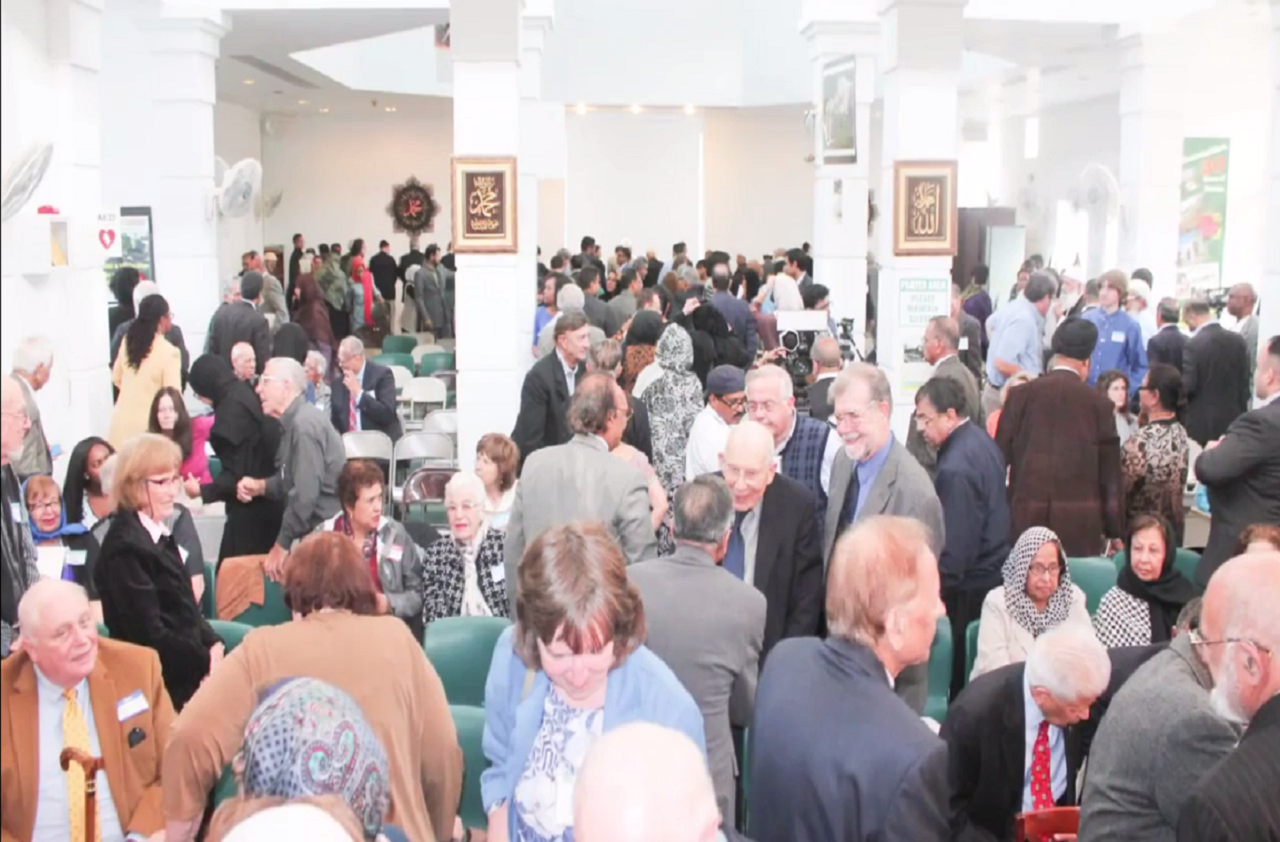
This event attracted a large gathering, received extensive TV and print media coverage in Newsday, Long Island Press and Islamic Horizon magazine.
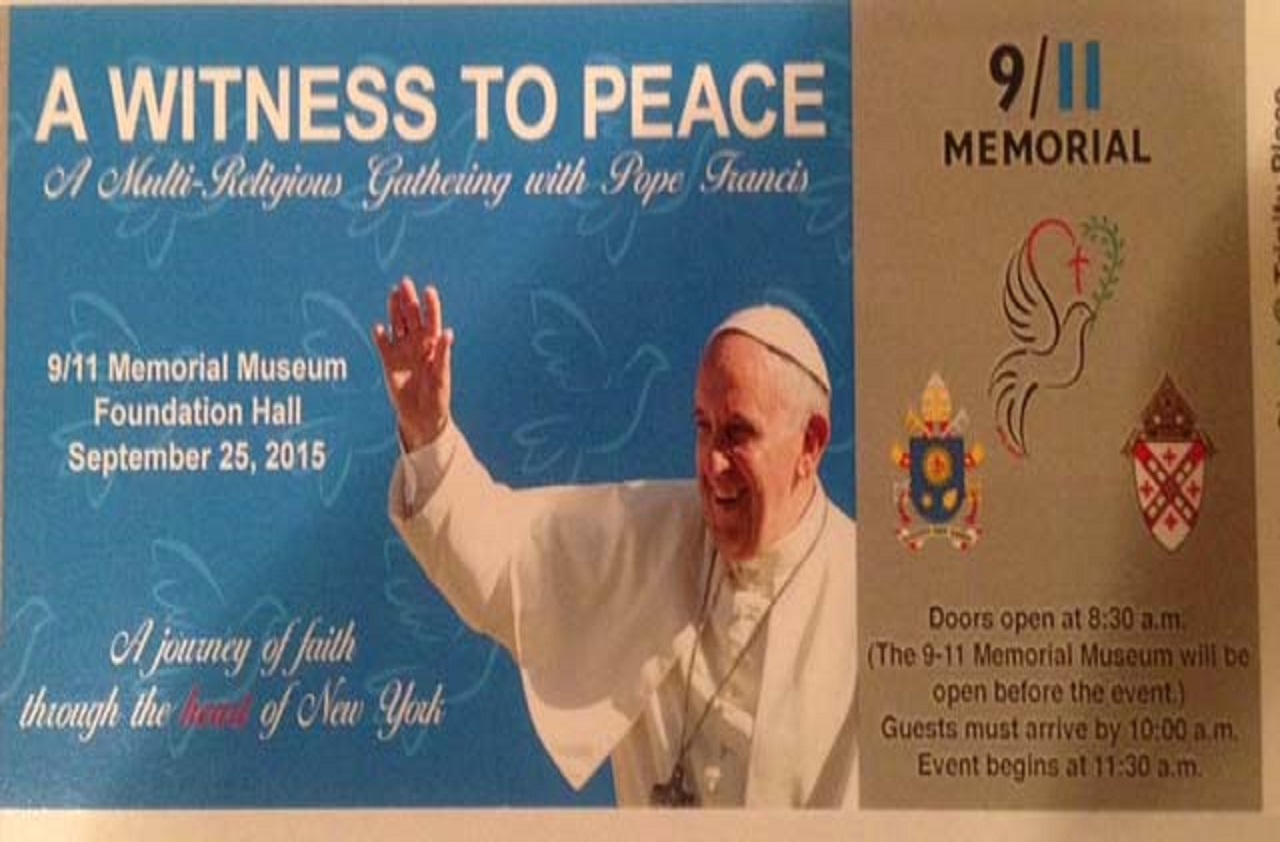
Earlier this year when we heard about the visit of Pope Francis we extended an invite for him to formally launch the interfaith institute at ICLI which he was unable to accommodate.
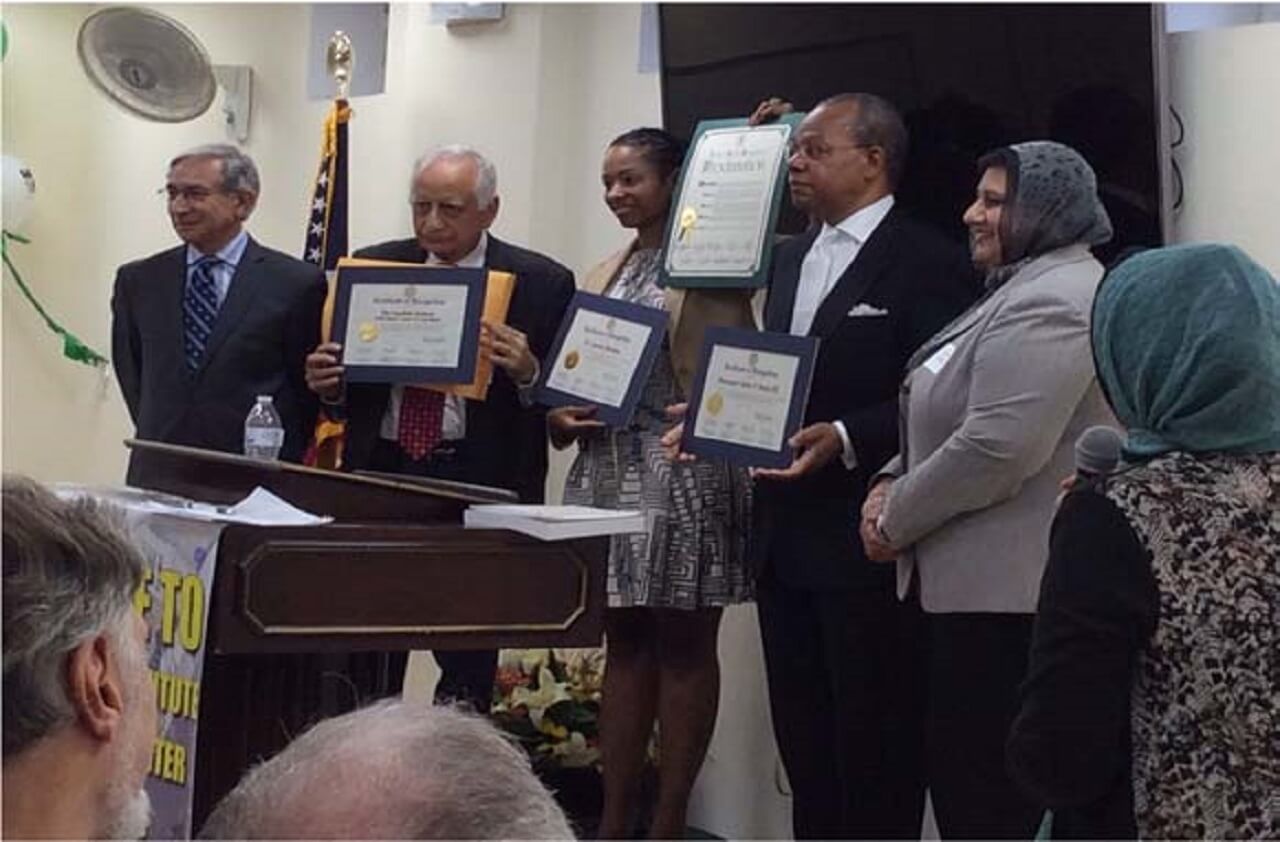
The presentation was very well received. We were able to share a short video from the Oct 25th launch of the interfaith institute of ICLI
See full story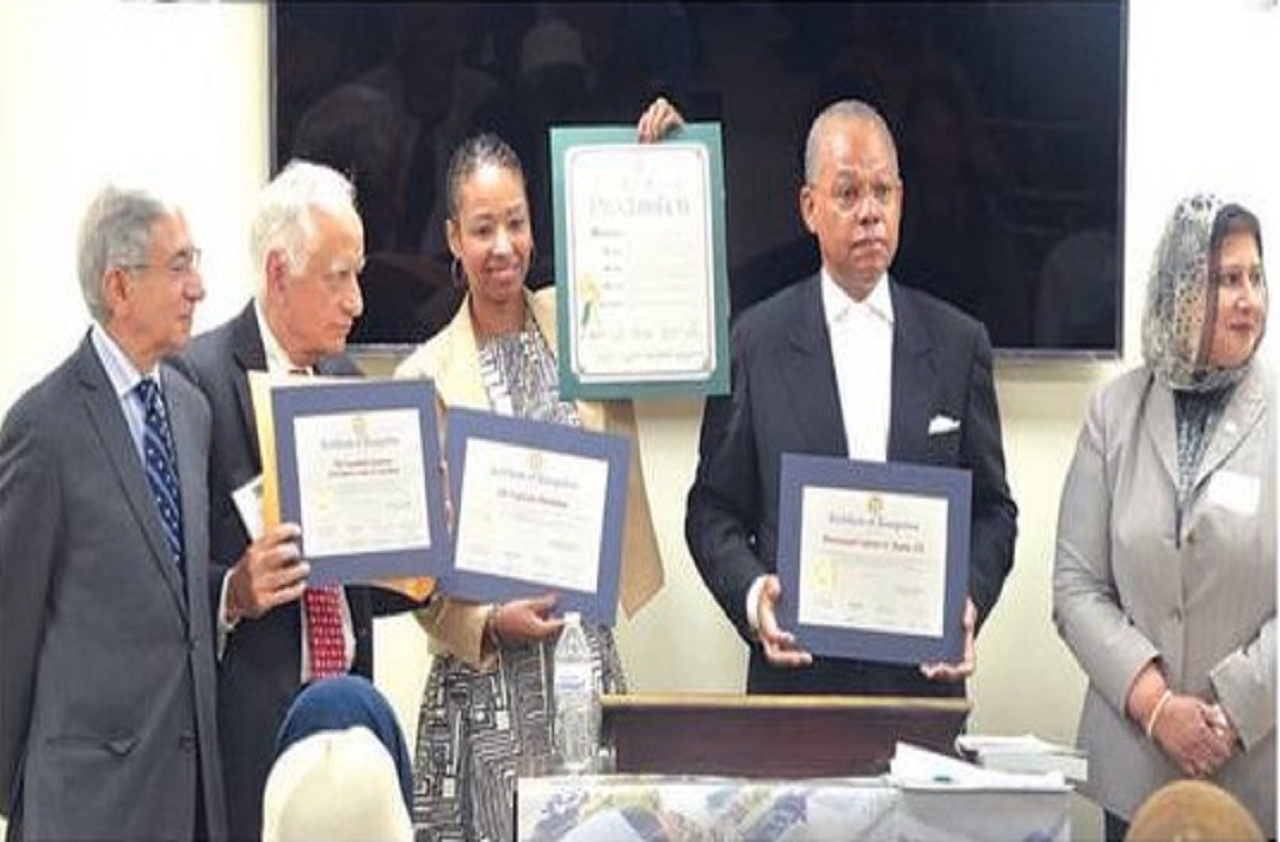
When some countries began to ban the hijab of Muslim women and attack the Islamic dress code, Dr Larycia Hawkin, a Christian and former associate professor...
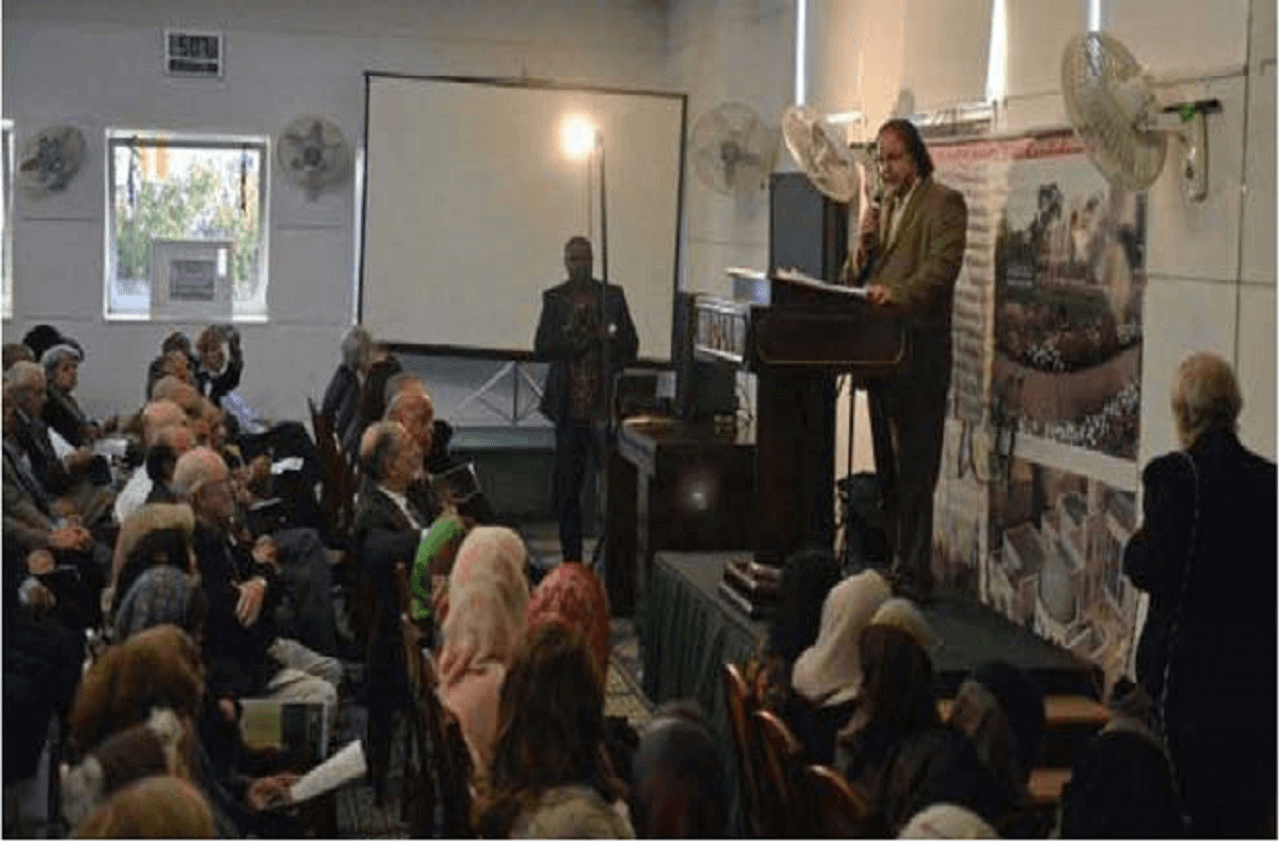
John Andrew Morrow speaks during interfaith event at the Islamic Center of Long Island in Westbury on Sunday 25, 2015. (Credit : Steven Sunshine)
See full story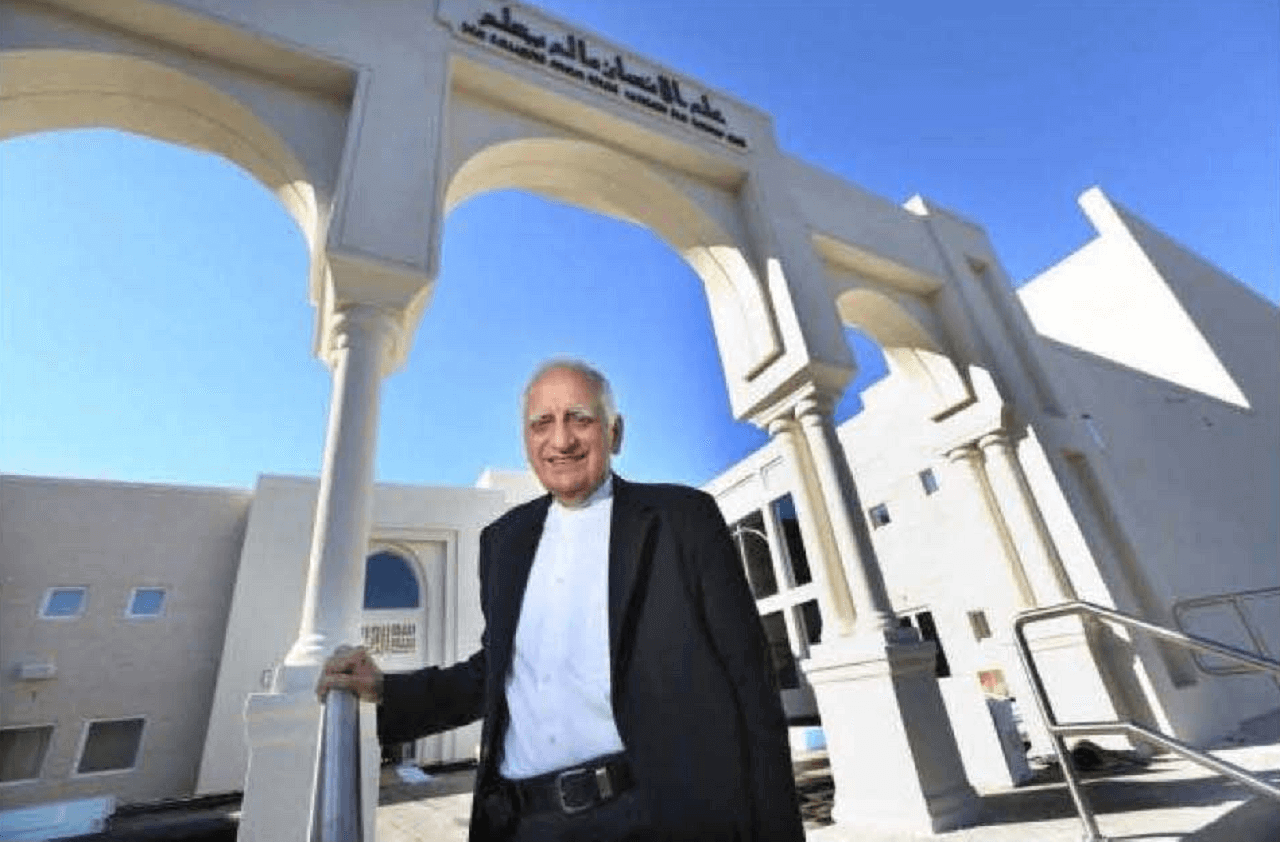
Dr. Farooque Ahmed Khan is shown in front of the triple arches that lead into the newly constructed building that will house the Islamic Center of Long Island...
See full story